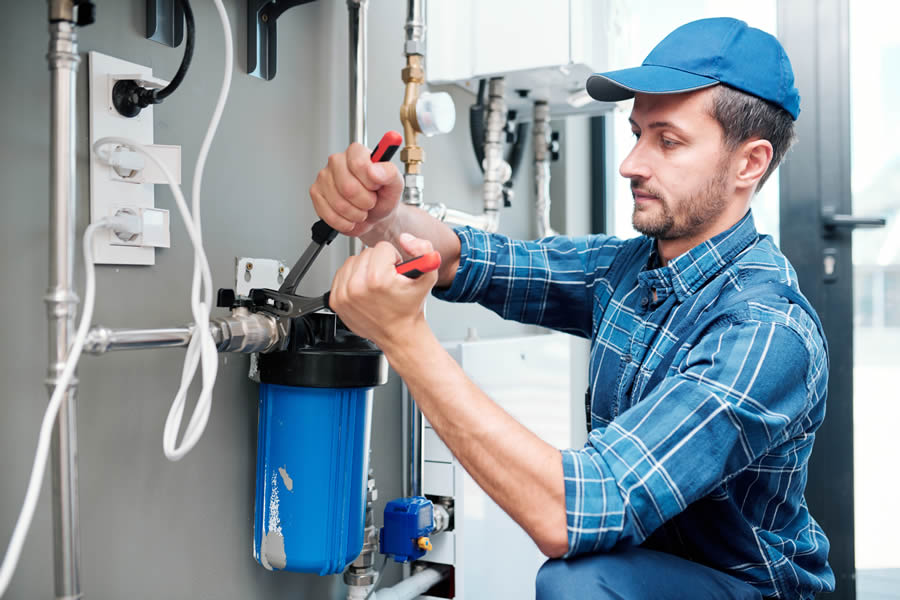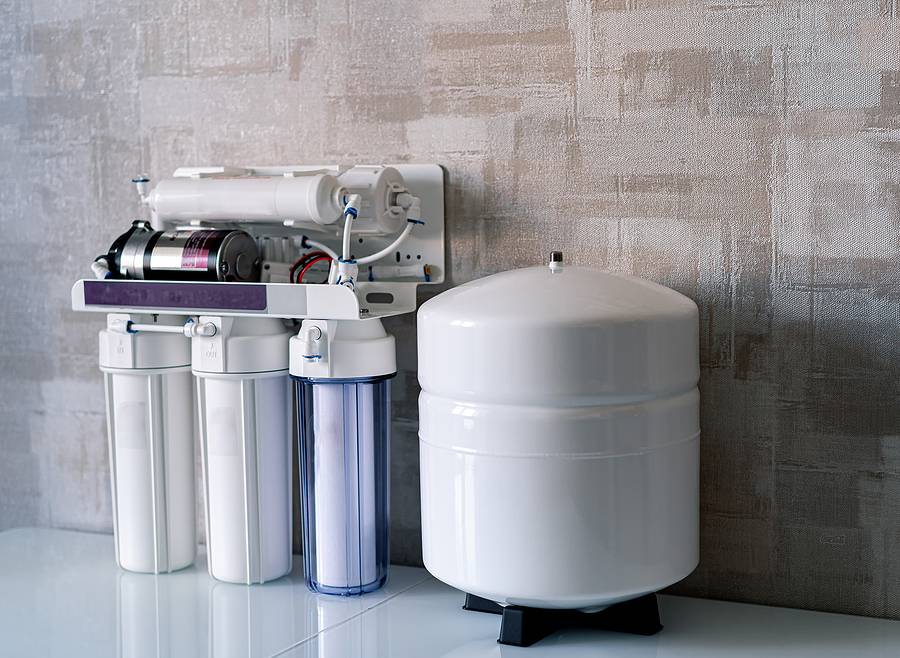
If you notice chalky residue on your faucets, silverware, and glassware, then your water supply may be carrying “hard water.” Fortunately, you’re not stuck with cleaning that chalk off your things. A water softener installation can eliminate excess minerals in the water supply to save you from the chore of extra cleaning. If you need a water softener installation in Los Angeles & Orange Counties, then call Express Plumbing & Rooter to hire a uniformed plumber. Continue reading or call Express Plumbing if you have any questions or concerns.
Hard water is a common issue in many households, characterized by a high mineral content, primarily calcium and magnesium ions. These minerals dissolve into the water as it moves through rock formations, picking up these compounds. Water with a higher mineral concentration is considered hard, while lower levels classify it as soft.
The impact of hard water extends beyond simple inconvenience. It leads to mineral buildup in pipes, appliances, and fixtures, causing blockages and reducing the efficiency and lifespan of these systems.

Furthermore, the mineral deposits can affect the lathering of soaps and detergents, forcing you to use more and leaving a residue on dishes, clothes, and skin. Additionally, the mineral deposits can lead to scaling in water-using appliances, reducing their effectiveness and requiring more frequent maintenance and repairs.
Water softeners are devices designed to mitigate the effects of hard water by removing the minerals responsible for its hardness. These systems employ ion exchange or other methods to replace calcium and magnesium ions with sodium or potassium ions. The exchange occurs within a resin tank where the mineral-heavy water passes through resin beads that attract the minerals, effectively softening the water.
Maintaining a water softener is essential for proper function. Regular tasks include refilling the salt or potassium reservoir, cleaning the brine tank, and occasionally sanitizing the system to prevent bacteria or mold growth.
Moreover, the resin bed should be periodically checked for efficiency and any need for replacement. It’s recommended to follow the manufacturer's guidelines for specific maintenance procedures, typically involving monthly and annual tasks.
The lifespan of a water softener can vary based on usage, quality, and maintenance. Typically, a well-maintained system can last around 10 to 15 years. However, factors like excessive use, irregular maintenance, or water quality can influence this duration. Signs indicating the need for replacement include decreased softening efficiency, increased hardness in water, or mechanical issues that persist despite maintenance efforts.
While some homeowners might opt to install a water softener themselves, the installation often requires integrating the softener into the home's water supply system. This is work that is best left to a trained and experienced plumber. If you want to avoid costly plumbing mistakes, then hire a uniformed plumber to install the water softener. Residents in the Los Angeles & Orange Counties can call Express Plumbing & Rooter at any time of the day.